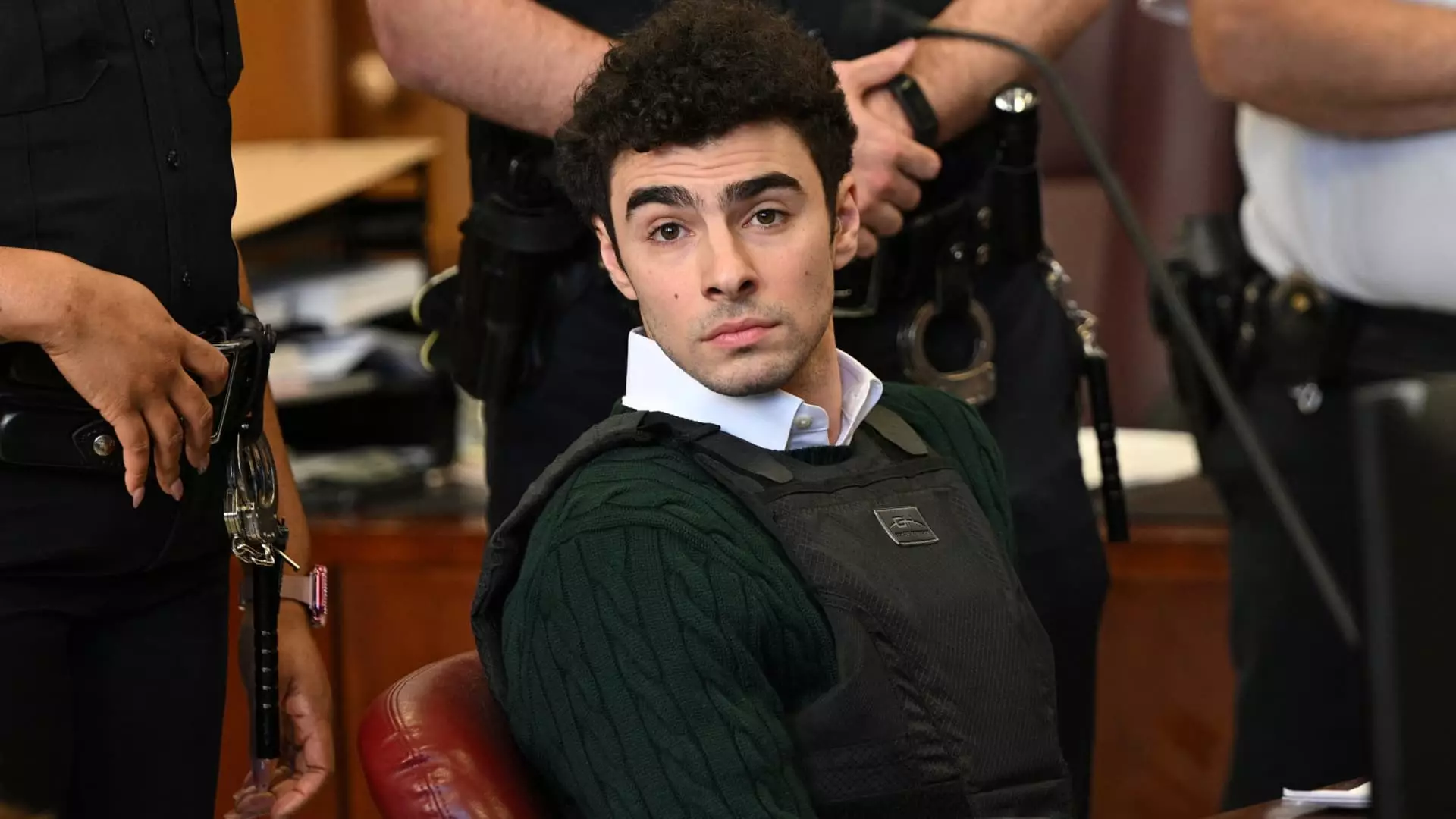In a chilling and complex case that has gripped the nation, Luigi Mangione’s tragic alleged murder of Brian Thompson, the CEO of UnitedHealthcare, reveals unsettling truths about societal anger transformation into lethal violence. Set against the backdrop of political and social tensions surrounding healthcare, Mangione’s actions are being portrayed as a deliberate ideological statement. The implications of a young man’s choices not only highlight his internal struggles but also expose larger, systemic flaws in our healthcare narratives and social discourse.
Mangione, a 26-year-old University of Pennsylvania graduate, reportedly executed a meticulously planned assassination in December, just as Thompson walked into a Hilton Hotel hosting a corporate event. The public killing resonates unsettlingly with a society rife with dissatisfaction and anger towards powerful institutions. The allegations that Mangione acted out of a philosophical disdain for the health insurance industry raise an important question: Where do our frustrations lead when directed toward a single individual—a symbol of a larger system?
The Role of Ideology in Crime
Federal prosecutors have positioned the assassination not merely as an isolated crime but as a politically charged act. The Justice Department’s description of the murder as ideologically motivated underscores a growing fear that disenfranchised individuals may resort to violence as a means of protest. Mangione is accused of not only premeditated murder but using this heinous act to amplify his ideological grievances against an entire industry. In a society where dialogue about systemic issues often devolves into shouting matches, the idea of resorting to violence raises troubling questions about our ability to engage in meaningful conversation.
U.S. Attorney General Pam Bondi bluntly stated that this was an act of cold-blooded premeditation, which underscores a disconcerting use of language that may further embroil the case in a politically charged atmosphere. It suggests that when individuals feel powerless, they may feel justified in extreme actions to make their voices heard. This tragic event beckons a critical examination of both individual motivations and the broader societal contexts that can breed such desperation.
Legal Ramifications and the Quest for Justice
In the legal realm, the implications of seeking the death penalty in this case evoke intense debate. Prosecutors argue that Mangione poses a future danger because of his expressed intent to incite a violent backlash against the healthcare industry. Yet, there remains a troubling element to the notion of justice being served through state-sanctioned execution. Does the pursuit of the death penalty in this case serve to quell the ideological anger, or does it perpetuate a cycle of violence and retribution?
Mangione’s defense team has sought to halt the death penalty, asserting that public statements made by Attorney General Bondi compromise his right to a fair trial. This highlights the delicate balance between public safety, justice for the victim, and the rights of the accused—a tension that plays out in the court of public opinion as much as it does in judicial chambers. U.S. District Judge Margaret Garnett’s directive for restraint among legal representatives underscores the critical need for a fair trial free from the weight of media speculation and political rhetoric.
The Broader Implications for Society
While the specifics of this case are alarming, the battleground extends far beyond Mangione and Thompson. This tragic incident is symptomatic of a nation grappling with divisive ideological fractures over healthcare and institutional distrust. As we observe the unfolding legal proceedings, it becomes increasingly essential for societies facing complex, entrenched grievances to reassess how they can engage in constructive dialogue rather than resorting to violence.
The events surrounding Thompson’s murder force us to confront uncomfortable tensions within our society—reflecting deep-seated frustrations with health systems, the economy, and how power dynamics are often experienced differently across demographic lines. Acts of violence such as these are, at their core, reflections of a societal failure to cultivate empathy and understanding amidst disagreement.
The tragic intersection of ideology and violence in the Mangione case serves as a grim reminder that unresolved societal grievances can lead to catastrophic outcomes. As communities, we must prioritize advocating for discourse and reform that addresses these frustrations, lest we see more individuals like Mangione succumb to despair and enact violence as a means of expression.

